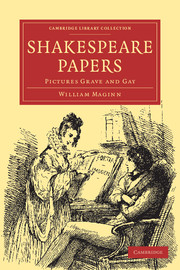Summary
“Of this unlucky sort our Romeus is one,
For all his hap turns to mishap, and all his mirth to mone.”
The Tragicall Historye of Romeus and Juliet.“Never,” says Prince Escalus, in the concluding distich of Romeo and Juliet,
“—was there story of more woe
Than this of Juliet and her Romeo.”
It is a story which, in the inartificial shape of a blackletter ballad, powerfully affected the imagination, and awakened the sensibilities of our ancestors, and in the hands of Shakspeare has become the love-story of the whole world. Who cares for the loves of Petrarch and Laura, or of Eloisa and Abelard, compared with those of Romeo and Juliet? The gallantries of Petrarch are conveyed in models of polished and ornate verse; but, in spite of their elegance, we feel that they are frosty as the Alps beneath which they were written. They are only the exercises of genius, not the ebullitions of feeling; and we can easily credit the story that Petrarch refused a dispensation to marry Laura, lest marriage might spoil his poetry. The muse, and not the lady, was his mistress. In the case of Abelard there are many associations which are not agreeable; and, after all, we can hardly help looking upon him as a fitter hero for Bayle's Dictionary than a romance. In Romeo and Juliet we have the poetry of Petrarch without its iciness, and the passion of Eloisa free from its coarse exhibition.
- Type
- Chapter
- Information
- Shakespeare PapersPictures Grave and Gay, pp. 92 - 115Publisher: Cambridge University PressPrint publication year: 2009First published in: 1859



